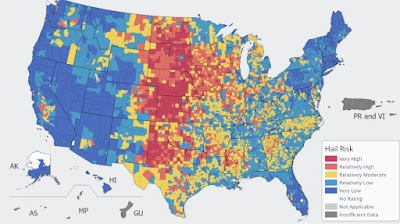The cost of insuring solar panels can vary depending on several factors, including the location of the panels, the value of the system, the coverage options chosen, and the insurance provider. Generally, insuring solar panels is considered additional coverage under homeowners' insurance or a separate solar panel insurance policy.
As for the cost, it is difficult to provide an exact figure as it can vary significantly. However, some estimates suggest that insuring solar panels can cost anywhere from 0.1% to 0.5% of the total value of the system annually. For example, if the solar panel system is valued at $20,000, the insurance premium could range from $20 to $100 per year.
It's important to note that these figures are approximate and can differ based on individual circumstances. Factors such as the location's weather risks, the age of the system, and the coverage limits and deductibles chosen will all influence the insurance cost. It's recommended to contact insurance providers for accurate quotes and to discuss specific coverage options for insuring solar panels.
What damages can you insure against solar panels?
When insuring solar panels, you can typically obtain coverage for various types of damages. The specific coverage options may vary depending on the insurance provider and policy, but here are some common damages that can be insured against:
Property damage: This covers physical damage to the solar panels caused by events such as hailstorms, windstorms, lightning, fire, vandalism, theft, or falling objects.
- Hail: Hail can cause substantial damage to solar panels, especially if the hailstones are large and the panels are not designed to withstand them. Hail can crack or shatter the glass surface of the panels, reducing their efficiency or rendering them completely inoperable.
- Windstorms: High winds can lead to physical damage to solar panels, particularly if they are not securely installed. Strong winds can cause panels to detach from their mounts or can result in flying debris that can impact and damage the panels.
- Lightning strikes: Lightning poses a risk to solar systems as it can cause power surges that may damage inverters, electrical components, or even the panels themselves. Additionally, the risk of fire may increase due to lightning strikes.
Natural disasters: Coverage can be extended to include damage caused by natural disasters like hurricanes, tornadoes, earthquakes, or floods.
Electrical surge damage: This coverage protects against damage to the solar panels caused by power surges or electrical faults in the system.
Business interruption: If your solar panels are part of a commercial operation, you can obtain coverage for business interruption losses due to damaged or non-functioning panels, resulting in a loss of income.
Additional living expenses: In the case of residential solar panel systems, coverage can be provided for additional living expenses if your home becomes uninhabitable due to damage to the panels.
Liability coverage: This coverage protects you against potential liability claims if someone is injured or their property is damaged as a result of your solar panels or their installation.
Equipment breakdown: Coverage can be obtained for mechanical or electrical breakdown of the solar panels or associated equipment, including inverters or monitoring systems.
It's important to review the specific terms, conditions, and exclusions of your insurance policy to understand the extent of coverage provided. Different insurance providers may offer different coverage options, so it's advisable to discuss your specific needs with an insurance agent or representative to ensure you have adequate protection for your solar panels.

